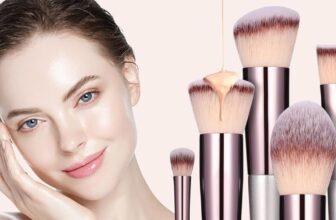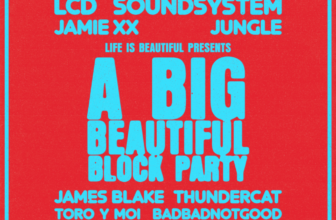Millennials are changing the way we think about skincare. They often prioritize self-care and wellness, leading to a growing interest in skincare products.
Understanding how often millennials purchase skincare can reveal their habits and preferences. Many millennials see skincare as essential, not just a luxury. They invest in products that fit their lifestyle and values. Brands that focus on sustainability and effectiveness attract this age group.
Shopping frequency can vary, influenced by trends, seasons, and personal needs. By exploring these patterns, we gain insight into the skincare market. This knowledge helps brands create products that resonate with millennials. Let’s dive deeper into how often millennials are buying skincare products and what drives their choices.
Millennial Skincare Shopping Habits
Millennials show unique habits in skincare shopping. Their choices reflect their values and lifestyle. Understanding these habits helps brands connect better with this group.
Shifts In Frequency
Millennials buy skincare products differently than older generations. They focus on quality over quantity. Here are some key points:
- Many purchase skincare products once a month.
- Some buy every few weeks.
- Others prefer seasonal shopping, changing products with the weather.
Data shows that 54% of millennials buy skincare products at least once a month. They often try new brands and products. This willingness to experiment influences their shopping frequency.
Preference For Online Vs. In-store
Shopping habits vary between online and in-store experiences. Millennials lean towards online shopping for skincare. Here are some reasons:
- Convenience of shopping from home
- Access to a wide range of products
- Ability to read reviews and compare prices easily
Despite the online preference, many still enjoy in-store shopping. Physical stores provide the chance to test products. Here’s a quick comparison:
| Shopping Method | Pros | Cons |
|---|---|---|
| Online |
|
|
| In-Store |
|
|
Both methods have their advantages. Millennials choose based on their needs at the moment. Understanding these preferences helps brands cater to them better.
Factors Influencing Purchase Decisions
Millennials make skincare choices based on various factors. Understanding these factors helps brands connect better with this age group. Here are the main influences on their purchase decisions.
Ingredient Awareness
Millennials are more aware of skincare ingredients than previous generations. They often research products before buying. Here are key points about their ingredient awareness:
- Interest in natural and organic ingredients.
- Concerns about harmful chemicals.
- Preference for cruelty-free products.
Many millennials read labels carefully. They want to know what they apply to their skin. Brands must highlight safe and effective ingredients.
Brand Loyalty And Ethics
Brand loyalty plays a significant role in skincare purchases. Millennials tend to stick to brands that share their values. Here are some aspects of brand loyalty:
- Brands with ethical practices attract more customers.
- Transparency in sourcing and production is vital.
- Supporting social causes resonates with this generation.
Millennials want brands that care about the planet. They often support companies that give back to society.
Peer Recommendations And Reviews
Word-of-mouth influences millennials greatly. Friends and family play a crucial role in product choices. Here’s how peer recommendations matter:
- Positive reviews can drive purchases.
- Social media influences buying decisions.
- Millennials trust user-generated content over ads.
Many rely on online reviews before trying new products. Brands need to encourage satisfied customers to share their experiences.
The Role Of Social Media
Social media plays a big role in how millennials buy skincare products. Platforms like Instagram and TikTok shape their choices. Users share their routines, reviews, and results. This creates a community around skincare. Millennials trust these opinions more than traditional ads.
With images and videos, social media makes skincare feel accessible. Users see real people using products. This boosts interest and encourages purchases. The visual aspect is key. It turns skincare into a trend.
Influencer Impact
Influencers have a strong impact on skincare buying habits. They share personal stories and product experiences. This builds trust with their followers. Many millennials follow influencers for beauty tips.
When an influencer recommends a product, sales often rise. Their fans want to try what their favorite stars use. This relationship drives many skincare purchases.
Promotional Campaigns And Their Reach
Brands use social media for promotional campaigns. They reach a large audience quickly. Creative ads catch attention and spread fast. Special offers and giveaways draw in more customers.
Millennials respond well to these campaigns. They appreciate discounts and exclusive deals. Social media allows brands to connect with their audience. This connection leads to more purchases.

Credit: www.statista.com
Budgeting For Beauty
Millennials face unique challenges with skincare budgets. Many want to look good without spending too much. They balance quality and affordability. Understanding average spending helps navigate this landscape.
Average Spending
On average, millennials spend about $300 to $400 on skincare each year. This amount varies based on personal preferences and brand choices. Here’s a breakdown of monthly spending:
| Category | Average Monthly Spending |
|---|---|
| Basic Skincare | $25 – $50 |
| Luxury Products | $50 – $100 |
| Occasional Treatments | $20 – $40 |
Budgeting for skincare requires planning. Many millennials prioritize essential products. They focus on cleansers, moisturizers, and sunscreens.
High-end Vs. Drugstore Brands
Millennials often choose between high-end and drugstore brands. Each has its advantages.
- High-End Brands:
- Offer premium ingredients.
- Focus on luxury packaging.
- Provide a unique experience.
- Drugstore Brands:
- More affordable options.
- Readily available at local stores.
- Often effective for daily use.
Many millennials mix both types. They buy high-end products for special occasions. Everyday skincare often comes from drugstore options.
Budgeting for beauty means finding the right balance. Quality products do not always mean high prices. Smart shopping can lead to great skin without breaking the bank.
Subscription Services And Repeat Purchases
Subscription services have changed how Millennials buy skincare. They enjoy the ease and convenience of getting products delivered regularly. These services help them try new brands while ensuring they never run out of their favorites. This section explores the role of subscription services and repeat purchases among Millennials.
Popularity Of Box Subscriptions
Box subscriptions are popular among Millennials. These subscriptions offer curated skincare products each month. Many brands use this model to attract new customers.
- Affordability: Subscribers often pay less than retail prices.
- Variety: Users receive different products, keeping their routine fresh.
- Convenience: Automatic deliveries save time and effort.
Data shows that over 30% of Millennials subscribe to a skincare box. This trend highlights their preference for discovering new items without commitment.
Loyalty Programs And Their Effectiveness
Loyalty programs have a strong impact on repeat purchases. Many brands offer points for every dollar spent. This encourages customers to buy more often.
| Brand | Points Earned | Rewards |
|---|---|---|
| Brand A | 1 point per $1 | 10% off after 100 points |
| Brand B | 2 points per $1 | Free product after 200 points |
| Brand C | 1 point per $2 | Free shipping after 50 points |
These programs build customer loyalty. Millennials appreciate the rewards for their spending. They are likely to return to brands that value their loyalty.

Credit: www.publicissapient.com
Customization And Personalization
Millennials value customization in their skincare. They seek products that fit their unique needs. Personalization creates a deeper connection with brands. This trend shapes how often they purchase skincare items.
Tailored Skincare Routines
Many millennials want tailored skincare routines. They prefer products that address specific skin issues. Some common issues include:
- Acne
- Dryness
- Oily skin
- Signs of aging
Brands offer quizzes and consultations. These tools help create personalized routines. Results show higher satisfaction and loyalty. This strategy increases repeat purchases.
The Rise Of Personalized Products
Personalized products are becoming popular. Brands now offer customized serums, creams, and masks. Customers can select ingredients based on their skin type.
Some benefits of personalized skincare include:
- Better results for individual needs
- Increased confidence in product effectiveness
- Enhanced customer experience
Research shows millennials are willing to spend more on these products. Customization leads to better engagement. This trend drives frequent purchases. Brands that embrace personalization see growth.
Eco-conscious Choices
Millennials care about the planet. They prefer skincare products that are eco-friendly. This trend shows their commitment to sustainability. Eco-conscious choices influence their purchasing habits.
Sustainable Packaging
Many brands now use sustainable packaging. This includes:
- Recyclable materials
- Biodegradable options
- Refillable containers
These choices reduce waste. Millennials appreciate brands that prioritize the environment. Sustainable packaging helps them feel good about their purchases.
Cruelty-free And Vegan Options
Cruelty-free and vegan products are popular among millennials. They want skincare that is kind to animals. Brands that offer these options attract more buyers. Here are some key points:
- Cruelty-free means no animal testing.
- Vegan products contain no animal-derived ingredients.
- These choices support ethical practices.
Millennials often check labels. They seek out brands that align with their values. This trend shows their commitment to ethical consumption.
Credit: www.surveymonkey.com
Technology Integration In Skincare Shopping
The rise of technology has changed how millennials shop for skincare. Online shopping is now common. Many prefer using tech tools for a better experience. They want to find the right products quickly. Technology makes this possible. It offers convenience and personalization. Let’s explore how technology integrates into skincare shopping.
Virtual Try-on Apps
Virtual try-on apps let users see products on their skin. These apps use augmented reality. Users can test different shades and products before buying. This saves time and reduces the chance of mistakes. Many brands now offer these tools. They help customers feel confident in their choices.
These apps are easy to use. Users simply upload a photo or use their camera. The app shows how products will look. This feature appeals to millennials. They value experiences over just transactions. Virtual try-ons enhance the shopping experience.
Ai-based Skin Analysis Tools
AI-based skin analysis tools provide personalized recommendations. Users answer a few questions about their skin. The tool analyzes the data and suggests products. This process is fast and convenient. It helps users choose the right items for their skin type.
These tools often use advanced algorithms. They consider skin tone, texture, and concerns. This level of personalization is important to millennials. They appreciate tailored advice. AI tools make shopping easier and more effective.
Frequently Asked Questions
How Often Do Millennials Buy Skincare Products?
Millennials typically purchase skincare products every few months. Many follow a seasonal routine, adapting their purchases to changes in weather. This ensures their skin stays healthy and hydrated year-round. Regular engagement with new trends also influences their buying frequency.
What Skincare Products Are Popular Among Millennials?
Popular skincare products among Millennials include moisturizers, serums, and sunscreens. They tend to favor products with natural ingredients and cruelty-free certifications. Additionally, many Millennials seek multifunctional products that save time and offer multiple benefits for their skin.
Do Millennials Prefer Online Or In-store Shopping For Skincare?
Millennials largely prefer online shopping for skincare products. The convenience of home delivery and access to reviews are significant factors. However, they still enjoy in-store experiences for trying products firsthand. This blend of online and offline shopping enhances their overall skincare purchasing experience.
Are Millennials Influenced By Social Media For Skincare Purchases?
Yes, social media significantly influences Millennials’ skincare purchases. Platforms like Instagram and TikTok showcase trends and reviews, shaping their preferences. Influencers and brand collaborations drive engagement and interest in new products. As a result, many Millennials discover and purchase skincare through social media channels.
Conclusion
Millennials care about their skin. They buy skincare products often. Trends show they value quality over quantity. Many prefer brands that align with their values. This age group seeks products that are clean and effective. Understanding their buying habits helps brands connect better.
Skincare is not just a routine; it’s self-care. Brands must adapt to these changing needs. Knowing how often millennials purchase skincare can guide future strategies. Embracing this knowledge may lead to success in the skincare market.







